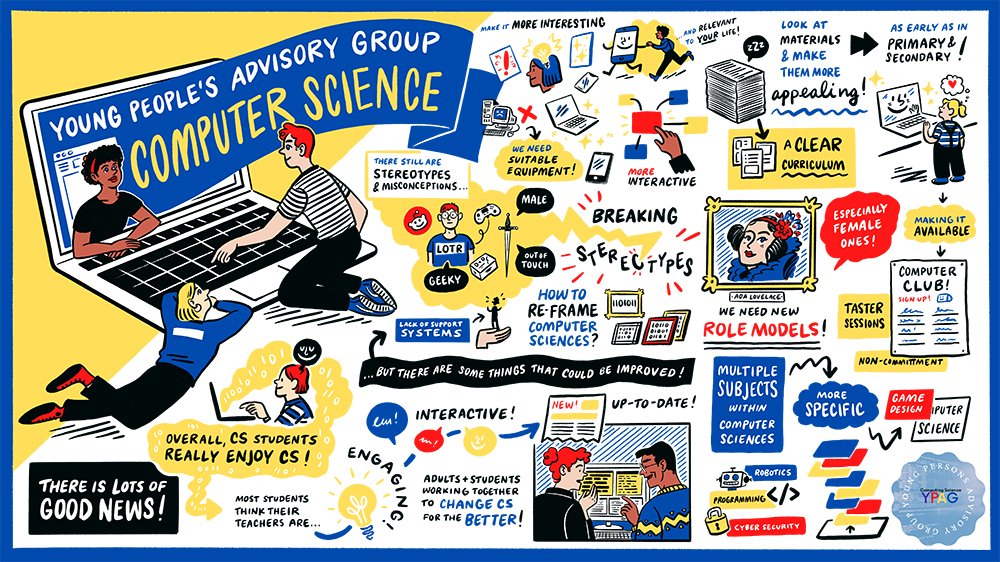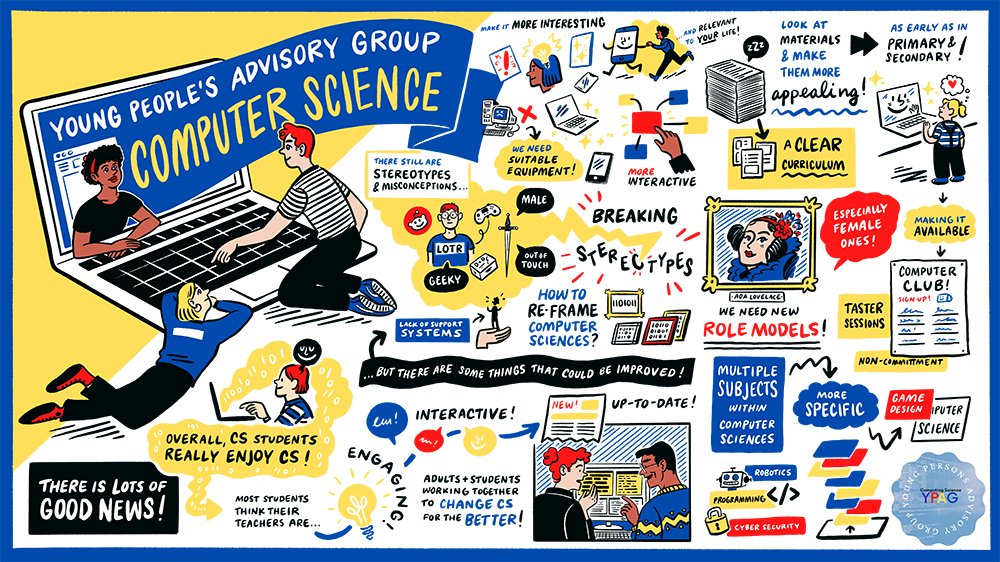
Christina, Jasmeen, Judy, and Kate are researchers at the University of Edinburgh. They are all committed to supporting young people to be involved in decision-making and ensuring that you have opportunities to share your views about topics that you think are important – and they’re inviting you to join their Computer Science Young Person Advisory Group for England this Summer.
Note that the deadline has been extended to tomorrow Friday 21st June (the documentation below gives an earlier date in May).
📄 ⬇️ You can download the information pack which includes the application form here and you can also view this document online. The text below is taken from the info pack.
“Would you like to be part of a diverse and exciting group of young people who will make an impact on Computer Science education in England? Join our Computer Science Young Person Advisory Group!
Aim of the Group: To help the STEM Learning Network learn more about what young people in England want from their Computer Science education and how they want to learn. You will also learn new research skills, make friends, and be a part of a community creating change.
Why we think it is important to find out what young people think about Computer Science in school: Computing includes web design, programming, using information and data, online security and cyber security, and digital learning. It’s important to us to find out what young people think about what is taught in computing and how it is taught because we really want more young people to study the subject.
Computing Science is a subject that will help people in a wide range of different careers, and there are many jobs available in the UK for people with computing skills. We want more young people to be empowered with these skills!
What does being a Young Person Advisory Group (YPAG) Member Involve?
- 14 hours of online meetings (approx. 7 x 2-hour meetings after school: 4 to be held weekly in June and up to 3 to be held some time after the focus group)
- Working with others to run a focus group with young people to find out their thoughts and opinions about CS education in England (to be held in July)
- Communicating with the group between meetings and completing different activities
- Designing a simple creative report or video to share the findings
Timing: June –September 2024″
Subscribe to be notified whenever we publish a new post to the CS4FN blog.
EPSRC supports this blog through research grant EP/W033615/1.



